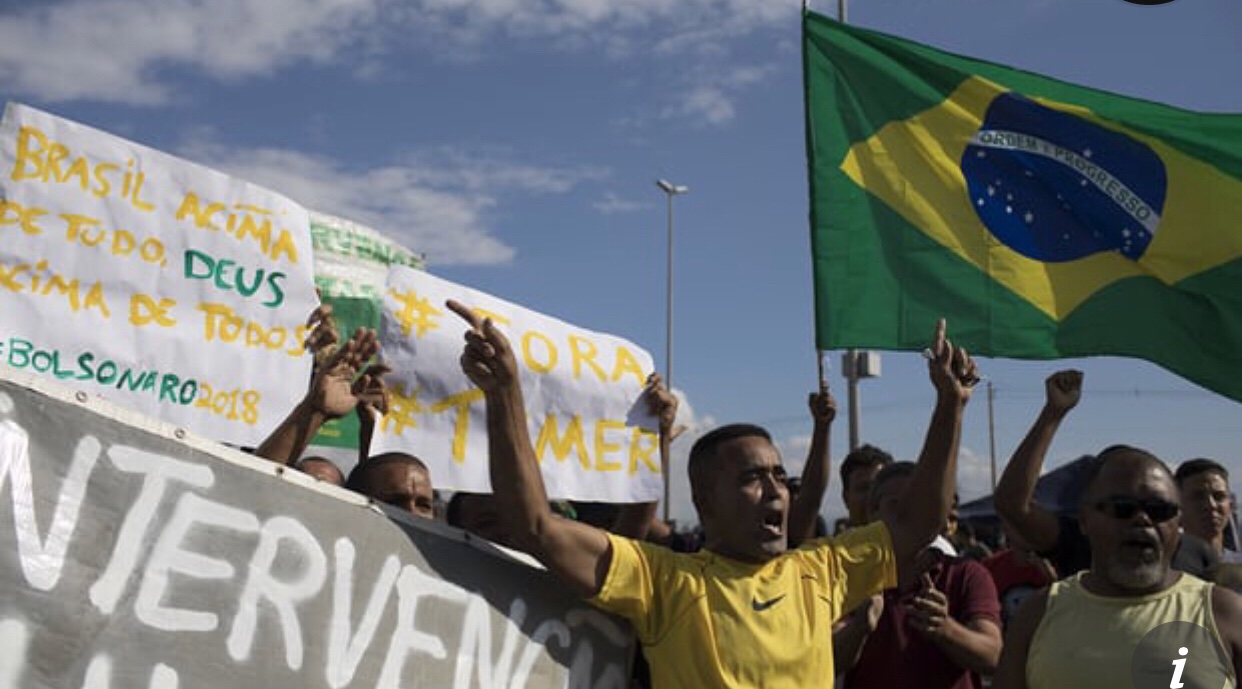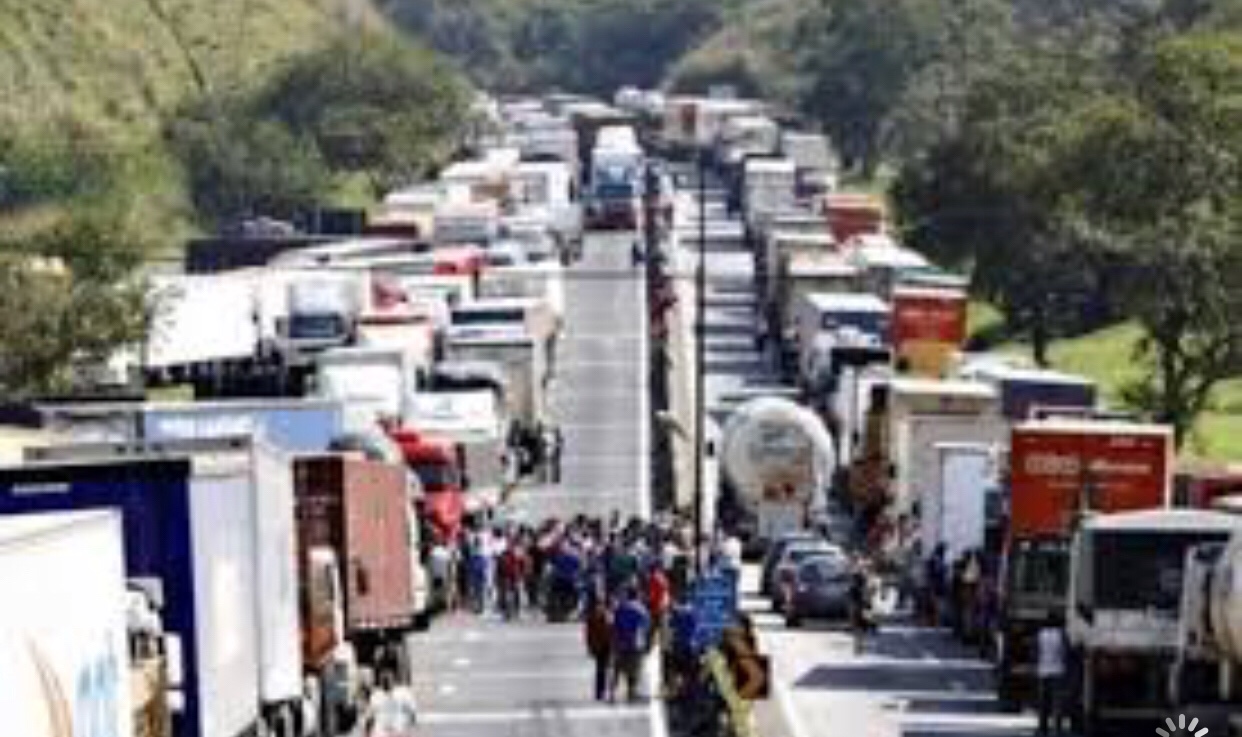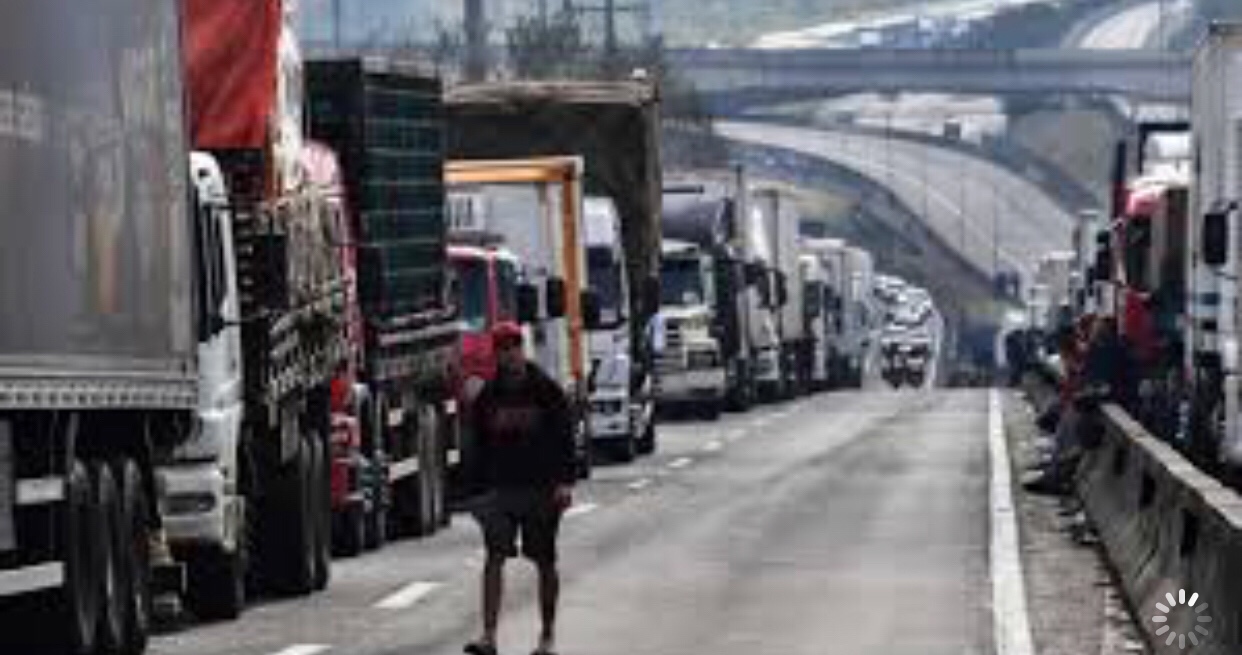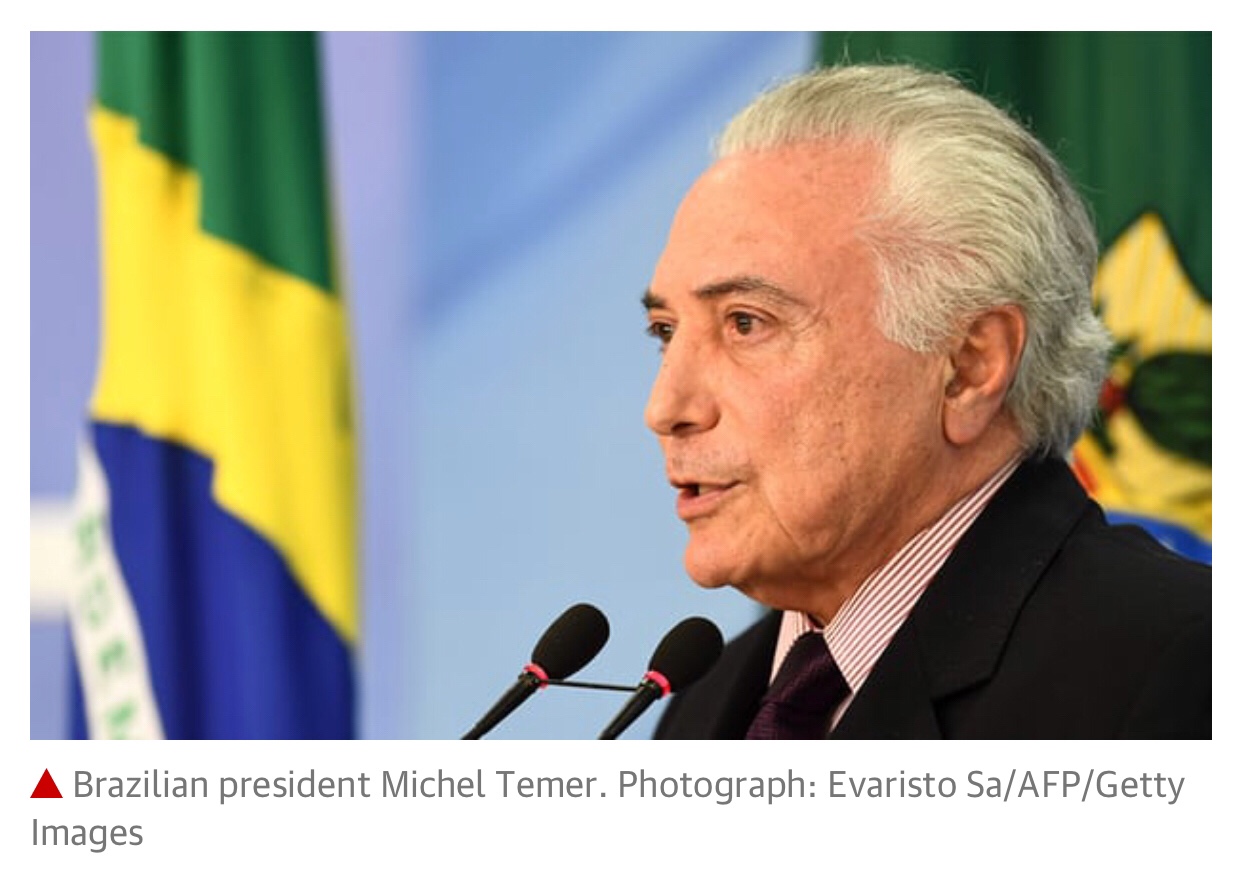Brazil’s trucks back on the roads but tensions remain high in fragile economy
Having worked the last five years in Brazil, I am always interested in the latest developments of the country. I love Brazil and its people. It is one of my favourite countries in the world. I have many friemds there.
One thing I have learned is that Brazilian people deserve more and better than they have got. Especially the last years.
Brazilians are protesters, activists. So they show their minds with their feet. They delämonstrate in thevstreets and they strike. Unfortunately, most of the time for no good and without results.
I found this article in the Guardian. It describes the latest national strike, this time a truck strike that have really damaged the country. Even if I don’t agree with everything they write, it is an intersting view of the situation,
You find the article here below.
As the national Presidential election is coming up in a few months, I sincerely hope Brazil gets it right this time. Brazil needs it. We do too.
‘A nationwide trucking strike over fuel prices in Brazil finally came to an end last week after 10 days of chaos in which roads were blockaded, South America’s biggest economy suffocated, and the CEO of Brazil’s state-controlled oil company was forced to resign.

Supplies are back in the shops, and trucks back on the roads. And yet, things are far from normal.
Brazilians were spooked by the ease with which the truckers brought the country to its knees, and by their calls for “military intervention” – a euphemism for a military coup.
“This strike showed that the country has extreme fragilities,” wrote economic commentator Miriam Leitão in her blog for O Globo newspaper.

But instead of looking for ways to prevent it happening again, Brazilians are digging into entrenched positions.
There has been little debate over why the country is so dependent on road transport. Instead, Brazilians argue over when and how state-controlled oil company Petrobras should set fuel prices – the cause of the strike – and whether it should make money for its shareholders or swallow losses for the benefit of the nation.

Brazilians can’t even agree on what the dictatorship was. Many “interventionists” mistakenly believe there was no corruption under the military.
And others point out that hundreds of regime opponents were executed and thousands more viciously tortured under the repressive regime that ran the country for two decades until 1985.
Amid a growing sense that Brazil is adrift, a poll by the Datafolha polling institute found that 87% of Brazilians supported the strike – but rejected tax rises or spending cuts to pay for the fuel subsidies that eventually resolved it.
The cash-strapped conservative government of Michel Temer found the money by cutting investment elsewhere, including for health and education – a move likely to increase social tension in a country where poverty is on the rise.
“We have watched a flirtation with collective suicide,” wrote rightwing commentator Reinaldo Azevedo, who compared Brazilians heading to the polls in October’s congressional and presidential elections to lemmings heading for a clifftop.
Leftist commentators are equally alarmed. “It is a dangerous moment,” said Laura Carvalho, a professor of economy at the University of São Paulo. “This is related to the economic crisis, the political crisis, the corruption scandals.”
The 2016 impeachment of Workers’ party president Dilma Rousseff – who was removed for breaking budget rules amid widespread anger over an enormous corruption scheme – was seen by some as a justified action against a corrupt government.
But a recent poll 48% said they thought the controversial process was a coup.
And since then, Temer and his ministers have been embroiled in even more spectacular scandals.

“This foments this idea that a military regime could in a way alter, transform this system,” Carvalho said. “It is a response of total disbelief.”
That Petrobras is central to Brazil’s latest nightmare is no surprise.
The corruption scandal that eventually felled Rousseff began with allegations that her political allies had received kickbacks from inflated contracts the company signed with contractors.
The allegations quickly spread to engulf the country’s political class, but also hit Petrobras, which was unable to complete two new refineries that would have allowed Brazil to produce more gasoline and diesel.
Rousseff’s administration forced Petrobras to sell gasoline and diesel below international prices to keep inflation down, costing it billions of dollars in revenue. Under Temer, the company swung in the opposite direction and started raising prices daily as the international cost of oil soared.
On Friday, the company’s CEO, Pedro Parente, resigned, in a move that was celebrated by labour unions but lamented by financial markets. Petrobras shares tanked.
Industry experts said the company should have showed more “sensitivity” in its price rises.
But sensitivity has been drowned out in an atmosphere of increasing polarisation.
Left and right hurl insults at each other over social media like rival supporters at a soccer game. Meanwhile, economists are slashing their growth forecasts for an economy only just limping out of recession.
“The strike and calls for military intervention are a wake-up call,” said Ilona Szabó, co-founder of Agora! (Now!), a new centrist group propagating “evidence-based public policies”. Szabo argued that too many people are looking for simplistic solutions to complex problems.
“Brazilians are crying for change but it’s not yet clear that they are prepared to put the public interest in front of private gain. Instead of rolling up their sleeves and building a common project they are clamouring for a saviour, a strongman, who can deliver the country from ruin,” she said’.
Source: The Guardian
You must be logged in to post a comment.